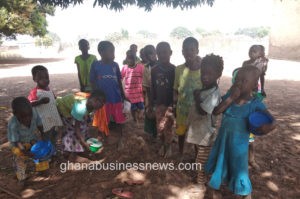Integrated approach needed to address child poverty – NDPC
 Dr Kodjo Mensah-Abrampah, the Director General, National Development Planning Commission, has called for the adoption of an integrated approach to address child poverty.
Dr Kodjo Mensah-Abrampah, the Director General, National Development Planning Commission, has called for the adoption of an integrated approach to address child poverty.
He said multi-dimensional child poverty analysis showed that children experienced multiple deprivations at a time, calling for a scale-up in child-sensitive social protection policies for inclusive development.
Dr Mensah-Abrampah made the call at a forum in Accra on the topic: “Towards an Agenda for Child-Responsive Inclusive Growth and Development.”
“A multi-dimensional child poverty analysis provides a wide-ranging approach that is used to support the direction of budgetary investments, especially in social sectors such as health, education, sanitation, and child protection,” he said.
He said child poverty should be a key issue on the national policy agenda as it disproportionately affected children, adding that all poverty reduction efforts needed to have children at their centre.
To ensure inclusive development, Dr Mensah-Abrampah said women and children inclusion in the new mining economy needed to be intensified considering the investment direction to reflect the reality on the field.
He suggested the need to undertake social restoration projects and retraining of citizens for new skills and that district assemblies must be encouraged to embark on planned local economic development.
Touching on policy and institutional arrangements for achieving child-responsive development, Dr Mensa-Abrampah called for proper linkage in harmonising the legislations on children’s welfare and well-being.
He called for proper resourcing of state institutions responsible for children’s welfare, such as the Department of Social Welfare, to perform their functions effectively.
On strengthening citizen’s demand for accountability, he called for the political will to resource district assemblies to foster participation and engagement with the citizens to deepened democratic governance at the local level.
The district assemblies should be encouraged to apply internally generated resources to support children’s issues, he said.
Some of the participants, contributing to the child-focused inclusive growth, called on government to connect water to the communities, since it had been a challenge over the years, making children to walk long distances in search of water, which affected their education.
Mr Cosmos Ohene Adjei, the Planning Officer, Ghana Aids Commission, said the Commission had instituted measures to prevent mother-to-child transmission by the end of 2020.
Statistics revealed that over 2,000 children are infected with the virus through Mother-to-child transmission.
Source: GNA
